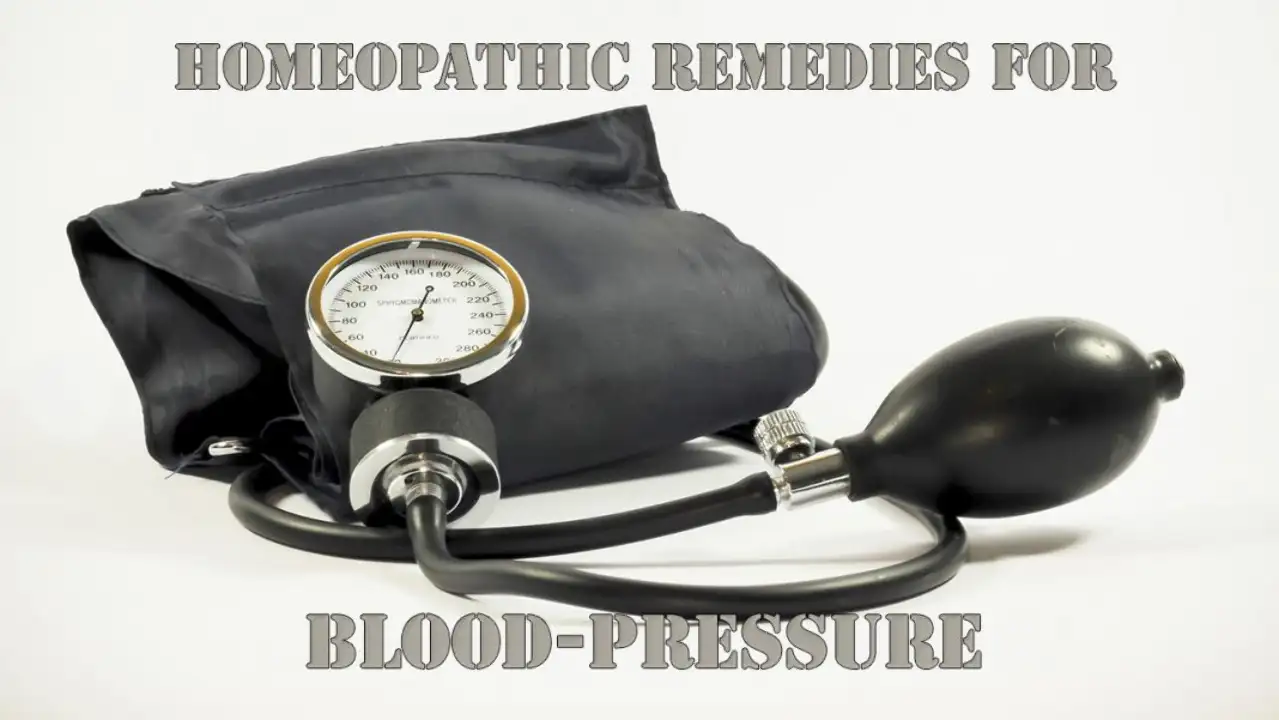Homeopathic Remedies for Blood-Pressure
Blood-Pressure
The pressure exerted upon the walls of the arteries during each contraction and relaxation of the heart is known as ‘Blood-Pressure’ It is determined by the volume of mercury (in millimeter) that may be raised by their pressure.
The function of the heart is
- to supply the purified blood to the whole system,
- to collect up the impure blood, and
- to send that to the lungs to be oxygenated there.
In the course of circulation the blood is again purified in the kidneys. The kidney filters the impure substances of the blood and those impurities are eliminated with urine.
The heart is continually contracting and relaxing. During each contraction (systole) the heart is propelling about 4.6 ounces of pure blood to the arterial system; and during each relaxation (diastole) some quantity of impure blood collected from the whole system and oxygenated blood from the lungs is poured into the two upper chambers of the heart. The walls of the vessels (arteries and veins) are elastic. During each systole some four to six ounces of blood is pushed up with some quantity of force into the arterial system which is already filled up with blood. Thus the pressure of blood upon the walls of the arteries during the systole must be much higher than that of diastole.
Owing to the natural elasticity of the arteries the blood-pressure keeps to a certain regular limits. In case the heart is diseased, i.e, in cardiac hypertrophy, the heart propells greater quantity of blood into the arteries with greater force. Again, if due to old age the arteries get sclerified and thus lose their natural elasticity and behave like a hard tube, then also the pressure of blood will be increased. Again if the peripheral resistance is increased, i.e. if the fine arterioles of the kidneys become hard or sclerosed, in that case also the pressure of the blood will be increased.
From the abovementioned facts we come to understand that the blood-pressure is increased due to the following three causes
- If the pumping machine (heart) pumps greater quantity of blood with greater force ;
- If the natural elasticity of the tubes (arteries) is lost and they are rendered incapable of expanding to equalize the pressure ; and
- If the peripheral resistance is increased e. the smallest arteries of the kidneys are sclerosed, and the elasticity is lost.
The normal blood-pressure in adult life
- Systolic pressure—110-135 mms. of Hg.
- Diastolic pressure—75-85 mms. of Hg.
The average difference between the systolic and diastolic pressure is 50. Age of an individual +90 (orlOO) is said to be his normal blood-pressure; thus the normal blood-pressure of a man of 50 years of age will be 50 + 90 = 140 or in some cases 150.
The pressure may be high or low than normal. The blood-pressure increases due to normal exertion or over work, over muscular exertions; excess of food, chronic constipation, indigestion, high living, etc. Complete mental and physical rest, occasional fasting, eating easily digestible food in moderate quantity may reduce the pressure to a considerable degree.
Symptoms: —Constant and severe heacache, blurred vision, vertigo, want of sound sleep, want of appetite and concentration, loss of memory, heavy feeling on head, and nausea are the common symptoms.
Treatment
Aur. Met. 3-30—High blood-pressure with despondency and suicidal tendency. Sensation as if the heart stopped beating. Palpitation, which compels him to remain still. Irregular beatings, Pulse irregular, rapid and feeble.
Baryta Mur. 3-30—Blood-pressure; palpitation of heart ; heart beats irregular.
It is said that Bar. Mur. 3x acts wonderfully in senile high blood pressure or high blood-pressure in old people.
Cactus Ɵ-3—Blood-pressure (low). Melancholic mood, fear of death, anxiety. Palpitation of heart, worse lying on left side; vertigo, difficult breathing, flatulence; pulse weak, quick, irregular.
Conium 6-200—Weak-memory; forgetfulness, Vertigo, headache. Violent palpitation of heart; irregular pulse. Trembling gait. Want of sound sleep, frightful dreams, especially adapted to old people.
Crataegus Ɵ-3—Blood-pressure breathing difficult on least exertion. Heart troubles; pulse weak, irregular, intermittent.
Gels. 3x-30—Dullness, drowsiness, dizziness, or trembling are the keynotes of this remedy. Desire to be left alone and to remain quiet. Vertigo and giddiness, Fear of death. Excessive action of the heart, palpitation. Sensation as if heart’s action would cease the heart. Pulse slow and full, frequent soft and weak, almost imperceptible, intermittent.
Glonoin 6-30— Oppression in heart region ; violent palpitation, laboured breathing ; pressure and fullness in heart ; feels difficulty in going up-stairs. Pulse frequent, intermittent. Vertigo ; black spots before eyes.
Kali Phos. 3x-30—He feels tired on slightest exertion; it abates palpitation ; intermittent action of the heart. Pulse irregular and intermittent. Sleeplessness.
Lycopodium 30-200—Blood-pressure of the dyspeptics. Weak memory. Dreads company, wants to be alone. Irritable, thinks his end is coming. Vertigo. Palpitation of the heart; sensation as if the circulation stopped. Pulse accelerated. Great emanciation and debility. Sleepy during day, wakeful at night.
Sulphur 30-200—Weak memory, dullness, vertigo. Palpitation of heart, worse when going up-stairs, pulse full, hard, accelerated, intermittent.
Viscum Alb. Ө-6—Blood-pressure (low) of heart, rheumatics and of gouty subjects. Palpitation of heart and other heart-troubles ; pulse slow, small and weak. Difficulty in breathing lying on left side.

Comments are closed.